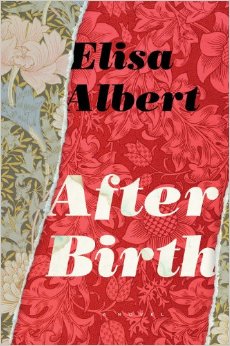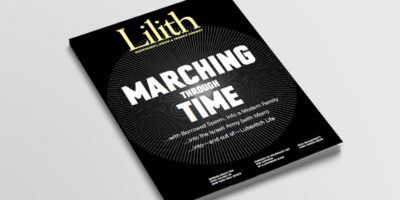
Sarah Seltzer Examines Elisa Albert’s “After Birth”
Women in my family and life passed down the warning: the months a parent, traditionally but not always a woman, is home with a newborn are actually a terribly lonely time. Sure it’s as joyous as everyone claims, but actually, not entirely. Thrilling, but simultaneously so terrifying. And when, inevitably, the relatives and well-wishers and perhaps the husband leave — because who has paternity leave in this day and age — it’s achingly solitary lonely.
We don’t live in a society that has made any moves to take this intense burden off the person who bears it on her shoulders. We don’t care. And our lack of caring hurts women.
“Why so numb, so incapable, so enraged, so broken?” asks Ari, the protagonist of After Birth by Elisa Albert, (Houghton Mifflin Harcourt, $23). Ari loves her baby son, Walker. She loves him so much, is so caught up in him, that she wants to walk out into the park, leaving him safe, and quietly die of exposure.
So when Ari, going through a mix of genuine postpartum depression triggered by a C-section she feels was forced on her, mixed with garden-variety angst about her life in upstate New York and her stalled career, finds new mom Mona, it’s no wonder that she gravitates directly towards her. This girl crush does not arise solely because Mona is a member of a famous riot grrl band from the 90s, a poet who gave birth at home with a midwife, a cool girl who possesses the qualities Ari lacks. It’s also because Ari begins to think maybe, once upon a time, there was a way that new mothers could gather in some hut somewhere, and support each other and teach each other how to mother and be less alone. Together, she and Mona begin to create something like that hut.
The climax of their friendship, and the novel’s meandering, time-traversing plot, arrives when Ari and Mona commit to a way of mothering each others’ kids that could be interpreted as either weird boundary transgression or an evolution in communal existence. Ari leaves it for us to judge. But don’t judge too harshly, the narrative warns its readers. Because new motherhood is so much harder than you think.
Albert’s previous novel, The Book of Dahlia, provided a merciless dissection of the darkest part of human life, its final chapters — and in the case of that novel’s doomed Dahlia, a premature, sad final chapter it was. While Albert’s blunt, profanity-laced inquiry into the ways human beings and families fail each other and contemporary life fails us all, is consistently sharp and funny, in that book the combination of her dark style and the dark subject matter felt almost too unrelenting.
In After Birth, Albert turns her now-trademark dark humor and merciless lens on the first chapters of life from the perspective of a new mother, and the result is a perfect balance of light and dark. “Swell little guy,” she says of her son. “Sunny super lovely love of a guy. If I kill myself, maybe he’ll grow up to be a poet.”
There’s a dirty secret about female friendships that Albert excavates over and over again while tracing her narrators’ histories with other women, which are clearly so much more interesting to her (and, to be honest, to me) than another novel about romance. She lays out longing, the fear and the desperation, the dozens of betrayals that constitute a woman’s history with women, gay or straight. She shows us the way we seek in other women for the things we don’t have ourselves, the way we love and hate them for it. And in the case of After Birth, that means looking at other mothers for the things you don’t have yourself. Sisterhood. Your own mother. A partner who understands. Albert’s writing excels in simultaneously showing us the allure and limits of this kind of intense, needy female bonding. The saying goes that if men could get pregnant, abortion would be a sacrament. Yet I keep thinking that if men could get pregnant, and Elisa Albert were Eli Albert, critical consensus would already be singing a chorus of praise for a novel that’s both great and, unfortunately, uniquely American.
Sarah M. Seltzer is a writer of fiction and nonfiction in New York City. She tweets at @sarahmseltzer.


